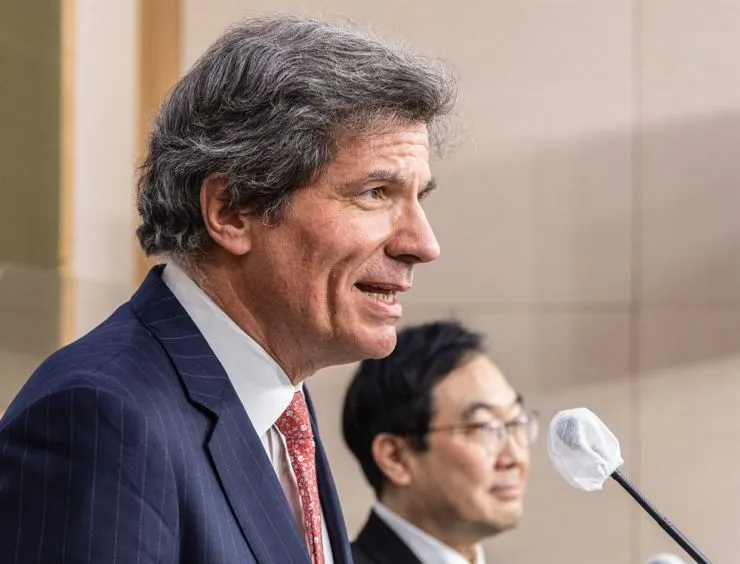The U.S. State Department envoy is scheduled to visit Chile, Uruguay, and Paraguay to discuss mineral and energy supply issues.
This comes in the wake of President Joe Biden’s promise to launch a new investment platform backed by billions of dollars.
This platform aims to balance China’s growing influence in these nations.
Jose W. Fernandez, the U.S. Under Secretary for Economic Growth, Energy, and the Environment will be on this diplomatic trip from November 5 to November 11.
The Department stated that the aim is to deepen economic cooperation and reinforce strategic alliances.
Last Friday, Biden unveiled this initiative at a White House event.
Leaders in attendance included Canada’s Prime Minister Justin Trudeau, the Dominican Republic’s President Luis Abinader, and Chile’s President Gabriel Boric.
Biden emphasized that this move offers U.S. neighbors an alternative to competitive debt-trap diplomacy.

In Chile, Fernandez’s discussions will focus on the “new financing tools” that Biden has unveiled.
Topics of importance include trade, investment, and bolstering mineral supply chains to hasten the shift to clean energy.
Preparation for the upcoming Asia-Pacific Economic Cooperation Summit, scheduled in San Francisco from November 15-17, will also be on the agenda.
On November 8, Fernandez is slated to converse with Latin American energy officials in Montevideo, Uruguay, about amplifying investment in the region’s energy transition.
The envoy’s trip will conclude with meetings in Asuncion, Paraguay, on November 9 and 10.
Background
The United States has long been a pivotal force in Latin American politics and economics. Historically, it has used both hard and soft power to maintain influence over the region.
Investment initiatives by the U.S. often aim to support strategic interests while promoting development.
For decades, China has been expanding its presence in Latin America. It has invested in various sectors, from infrastructure to technology.
This growing influence has prompted the U.S. to respond with its initiatives.
The Asia-Pacific Economic Cooperation (APEC) is a forum that fosters economic collaboration.
Its members are from both sides of the Pacific, including the U.S. and several Latin American countries.
It provides a platform for discussing economic challenges and opportunities.
Clean energy transition is a global priority. Latin America possesses a wealth of natural resources crucial for this transformation.
This includes minerals necessary for manufacturing high-tech, clean energy components.
U.S. economic diplomacy in the region has been evolving. It now often prioritizes green technology and sustainable development.
This shift reflects global environmental concerns and the push for cleaner energy sources.
As global dynamics change, the traditional geopolitical landscape evolves.
The U.S. seeks to adapt by nurturing partnerships and advancing in areas like technology and green energy.
This serves mutual interests and promotes long-term stability in the Americas.

